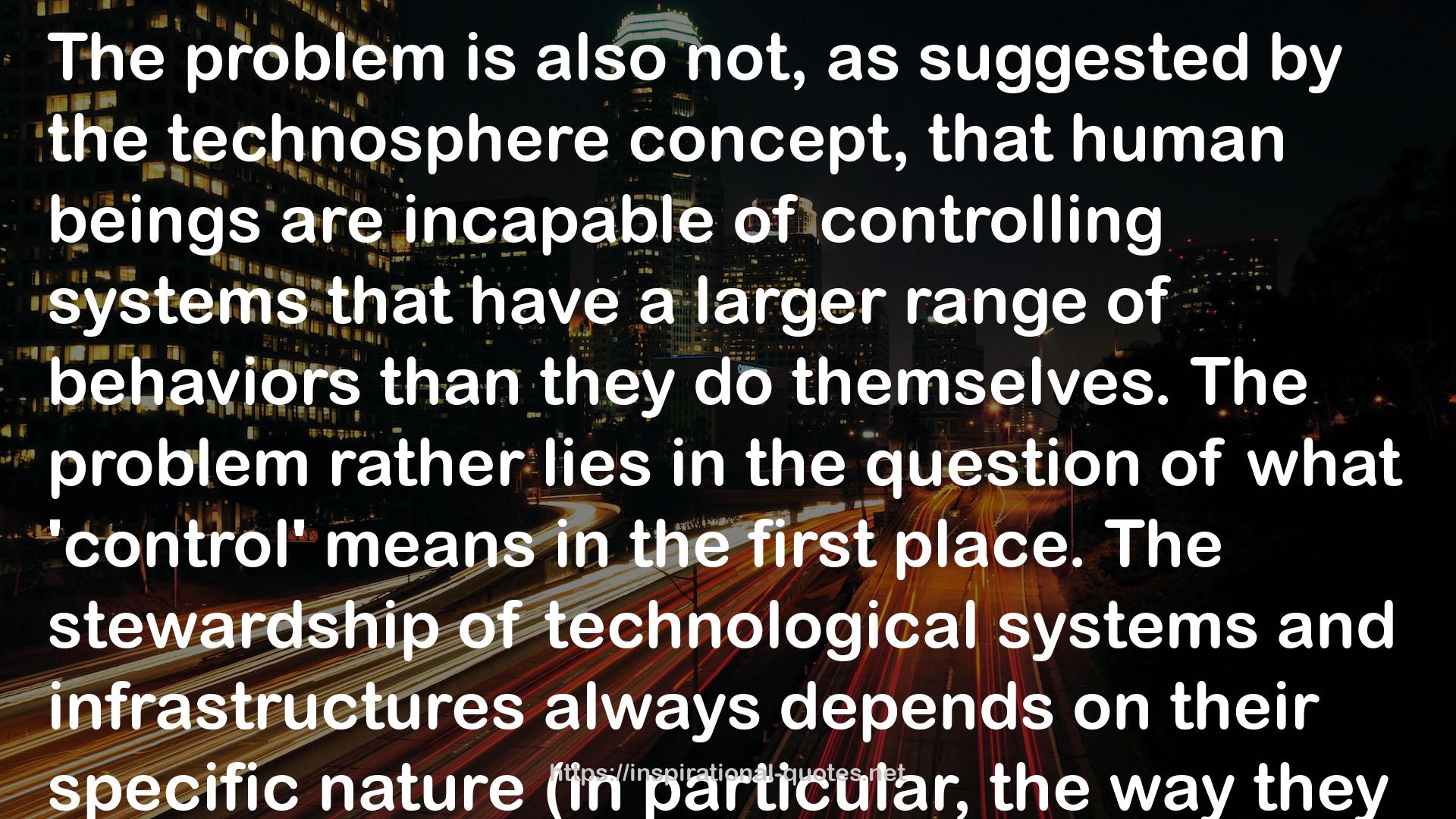" The problem is also not, as suggested by the technosphere concept, that human beings are incapable of controlling systems that have a larger range of behaviors than they do themselves. The problem rather lies in the question of what 'control' means in the first place. The stewardship of technological systems and infrastructures always depends on their specific nature (in particular, the way they are embedded in natural and cultural environment) as well as on their representation in knowledge and belief systems. Human cognition is always embodied cognition. There are historical examples showing that humans have been able to manage and sustain extremely complex ecologies and infrastructures of their own making over the long term. The systems' potential behaviors always far exceeded those of their human components, but these were typically ecologies and infrastructures in which the relevant regulative structures of human behavior had themselves been coevolving over long periods, including in their representation by knowledge and belief systems.
As recent work on Japanese ecologies during the Tokugawa period (between 1603 and 1868) shows, age-old traditions had accumulated knowledge on how to sustainably manage a complex landscape providing humans with food, shelter, clothing, and energy. The knowledge was implemented through a complex system of governance and material practices ranging from sanitation to publishing. "
― , The Evolution of Knowledge: Rethinking Science for the Anthropocene
